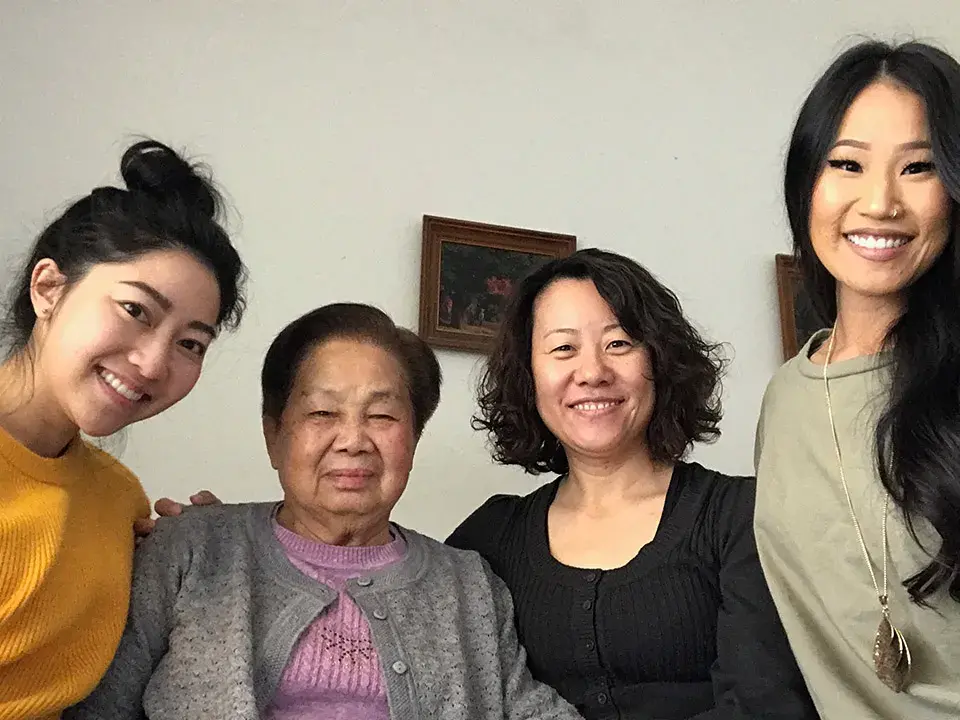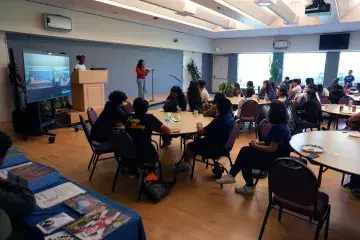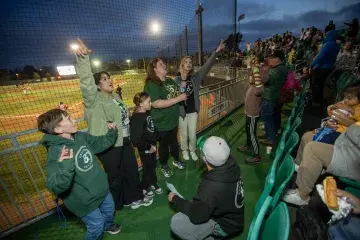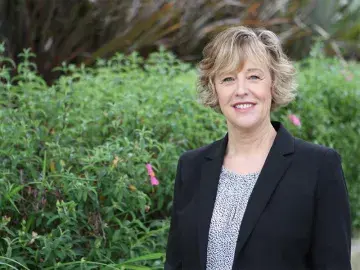Longtime Clinical Trains Nursing Students How to Prevent Falls, Hospitalizations

When Rachel Fariscal, BSN’ 20, arrived to check on a man in his early 90s she was nervous. She’d completed clinical hours at hospitals before but as part of her community health rotation she was about to enter someone’s home for the first time. The man, who lived alone in Hayward, had recently injured his head after taking a fall while bending over to collect his mail.
The visit was part of a fall prevention initiative for local seniors. Fariscal and her classmate were dispatched to evaluate tripping risks in the man’s home, review and log his medications, and discuss nutrition, exercise, and mental health.
Fariscal overcame her nervousness once she sat down with the man. Soon, she and her classmate learned that he was on blood pressure medication, which can increase the risk of falls.
”We taught him the symptoms of hypotension like dizziness and lightheadedness. And we asked him to check his blood pressure twice daily,” Fariscal says. “He was so excited the next week to show us his ’homework.’ He had diligently logged his blood pressure twice a day.”
Help the community
Fariscal identified and helped remove trip hazards in the man’s home, and taped down the corners of his rugs to keep them from slipping and rolling up. She also taught him easy exercises to help build strength—including shoulder shrugs and sitting leg stretches—and recommended a grab bar in his bathroom.
The visit was part of a partnership with nonprofit LIFE ElderCare, to help about 270 low-income seniors in Alameda County. Each semester for the past three years, 16 to 30 Samuel Merritt University bachelor of science in nursing students have visited seniors to help prevent falls, which are the leading cause of fatal injuries among seniors resulting in more than 2.8 million emergency department visits annually—including over 800,000 hospitalizations and more than 27,000 deaths, according to the National Council on Aging.
“Self-confidence goes up, right along with knowledge”
The BSN students visit the seniors in their homes for an hour every week for four weeks, assessing fall risks, reviewing medication and nutrition, teaching stretches and exercises, and talking to them about mental health—all while reporting their findings to LIFE ElderCare’s staff.
“For example, if a senior says, ‘Well, I'm diabetic,’ the students talk with them about what they are eating and how they are exercising. If they are sad or lonely or anxious, the students may ask them to practice relaxation techniques,” says Marion Harris, who teaches Nursing 170L—Community Health at SMU. “We talk to LIFE ElderCare staff who connect clients with resources as needed. If they are unable to cook their food, we refer them to Meals on Wheels, where nutritious meals are delivered to them.”
Harris believes that every student, even those who plan on working in acute care, have much to learn from this and similar community health initiatives. After all, many of the patients that nurses see in hospitals are seniors, she says.
“It becomes clear when listening to the students over their weeks of work that their level of self-confidence goes up right along with their knowledge,” says Patricia Osage, executive director of LIFE ElderCare. “They learn so much about available resources, best practices in communication, and trust development, and just the multifaceted workings of public healthcare with all its unpredictable twists and turns. These experiences will be of great benefit to their future patients—especially seniors.”


